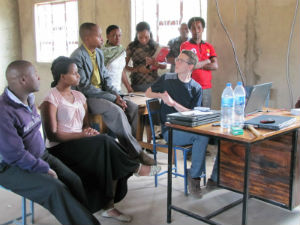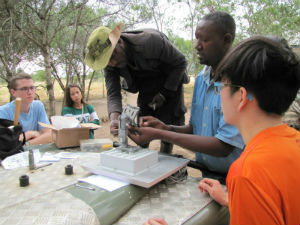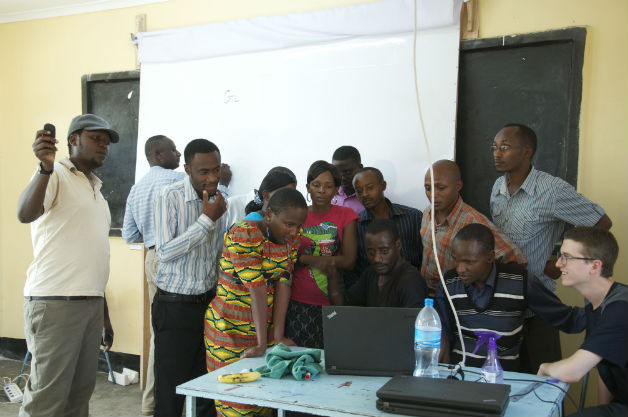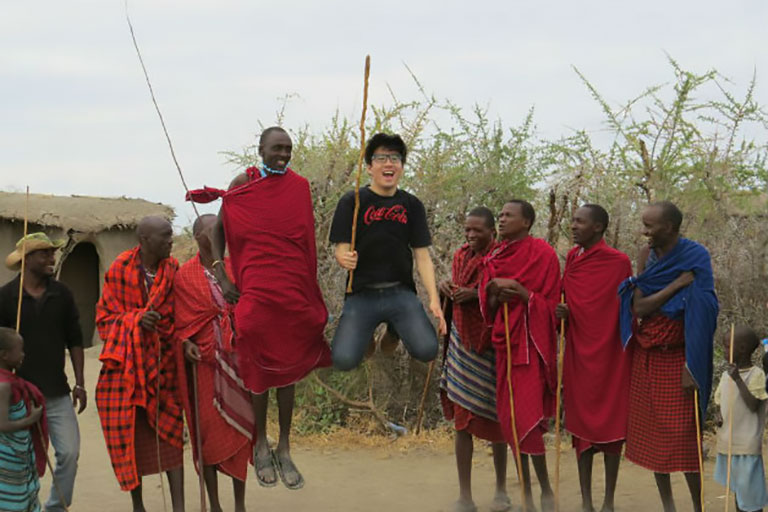Five schools in Tanzania are benefiting from enhanced technology that is improving the learning experience for students, thanks to the efforts of a study abroad program offered by the Department of Media and Information.
The Information and Communication Technologies for Development (ICT4D) study abroad gives MSU students an opportunity to design and implement real-world solutions, making a positive impact in this developing part of the world.
This service-for-learning program teaches students how to become socially active citizens and how information and communication technologies can be used to create practical solutions to enhance economic and social development in a developing country.
Each year, the program takes on one big project and works with five schools - three primary and two secondary schools - in the Rift Valley of northern Tanzania. This year’s big project was to design and install a video conferencing system between the two secondary schools.
"The reason why we developed this and the reason why they were so excited is because they don't have enough teachers," said Jennifer Olson, Associate Professor of Media and Information, who leads the program along with Erik Goodman, Professor of Electrical and Computer Engineering. "With this system, one teacher can teach in the two schools at the same time."
 To make the video conferencing system work, WiMax antennas were installed at each school along with cameras, projectors, screens, whiteboards, microphones and speakers.
To make the video conferencing system work, WiMax antennas were installed at each school along with cameras, projectors, screens, whiteboards, microphones and speakers.
Sean Rabaut, Computer Science major, oversaw the video conferencing system project and trained teachers on how to use the system.
Besides the big group project, three individual projects were completed, including:
- A survey about the information and communication technologies being used conducted by Linlin Liang, Telecommunication master's student. Every year, one student in the program takes on this project to help gauge program progress and make improvements for the future.
- A tutorial on how to use PowerPoint developed by Erica Hays, Supply Chain Management major, who also trained the teachers on how to use this program. As part of the project, several images were found that teachers could use on the projectors in teaching their classes.
- More than 2,000 math and science educational videos were downloaded from Khan Academy and other sources by Nathapol "James" Wisanphokha, Civil Engineering major, and placed on external hard drives and on computers to use in the curriculum. Along with this, Rabaut put together a document with hyperlinks for the teachers.
- "What's special about this is the students do their own projects that they develop and implement," Olson said. "It's a good learning experience on what works and what doesn't in a developing country. They find that things don't always work all the time."
 The idea for each project comes from talking to the teachers about their specific needs. During the program's first year, the big project was to design a solar system to run a computer lab. Since then, several projects have been completed.
The idea for each project comes from talking to the teachers about their specific needs. During the program's first year, the big project was to design a solar system to run a computer lab. Since then, several projects have been completed.
"When we first started this program, the teachers had never used a computer before. They were afraid to touch them and wouldn't let the students touch them for fear they would break them," Olson said. "Now the teachers are much more familiar with computers. They have email and Facebook accounts and are using them in their teaching. There also are computer clubs.
"What we are doing has made a huge difference for the teachers and students. They have seen a difference in the schools and the teacher retention is higher."
At the same time, the study abroad students learn valuable lessons and have once-in-a-lifetime experiences they will carry for the rest of their lives.
"The most important thing the students take away is the self confidence in going to a completely different country halfway across the world with a completely different culture and seeing that they are able to communicate with people and are able to contribute," Olson said. "They walk away with a better understanding of different cultures and see how they can enjoy themselves and work in that culture and how to contribute."
For a glimpse of this year’s program, see the video created by Hays.

